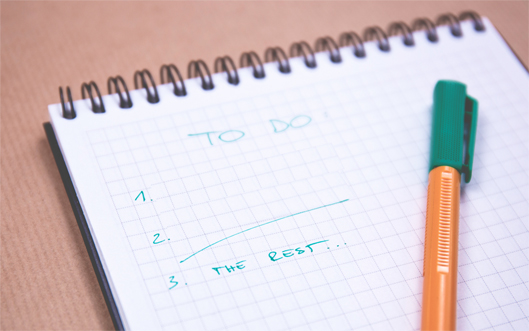 Fewer than 10 percent of all people who make New Year’s resolutions stick with them to the end of the year. In fact, half of them give up by midyear, and one-third don’t even make it to the end of January.
Fewer than 10 percent of all people who make New Year’s resolutions stick with them to the end of the year. In fact, half of them give up by midyear, and one-third don’t even make it to the end of January.
However, 100 percent of people who make resolutions have a greater chance of effecting positive change in their lives than those who do not make resolutions. And even those in danger of backsliding in January can increase their chances of success by adjusting their expectations as soon as possible.
Whether its losing weight, getting fit, or saving money, for example, start by choosing just one major goal and give that goal your full focus. Set clear, precise objectives. Instead of resolving to “lose weight,” commit to dropping 10 pounds by a specific, realistic date. If you manage to lose 15, 30 or 50 pounds, so much the better, but keep in mind that the more you deprive or exert yourself, the greater your chance of failure. The body and brain need time to adjust to physical and behavioral changes. Taking small, steady steps will go a long way toward reaching your goals.
Be patient. Understand the challenge you have set for yourself will not be easy. Don’t rely on willpower alone — avail yourself of whatever tools you can find to succeed. Plan for, and avoid, temptations. Join a group of like-minded people. Keep a journal, get an app, or sign up on a goal-friendly website to keep track of your progress. Make a plan of action, set up a schedule, or create reminders in your calendar. Compel yourself to stick to it by sharing your goal with a friend, or posting it on Facebook, if you prefer. Remind yourself that you have the ability to upgrade your mythology, to release and change the old myths that you hold about yourself and no longer serve the life you want to lead.
Set short-term goals, and reward yourself as you reach these milestones — but not by indulging in the behavior you are working so hard to correct. If, however, you do relapse, don’t be tempted to give up, not even for a day. A lot of damage can be done in a short amount of time. Pick yourself up, remind yourself of your progress so far, and move forward.
Make a lifelong commitment to change, because old habits die hard. One cigarette becomes a full pack in no time at all. One ice cream sundae can set up a craving capable of sending you right back to the start line.
If you start feeling weak, distract yourself however possible — physically, mentally or emotionally — as soon as you can. And remember that just because you may want to do something, doesn’t mean you have to. If you’ve come this far, you have already proved you are stronger than that.







